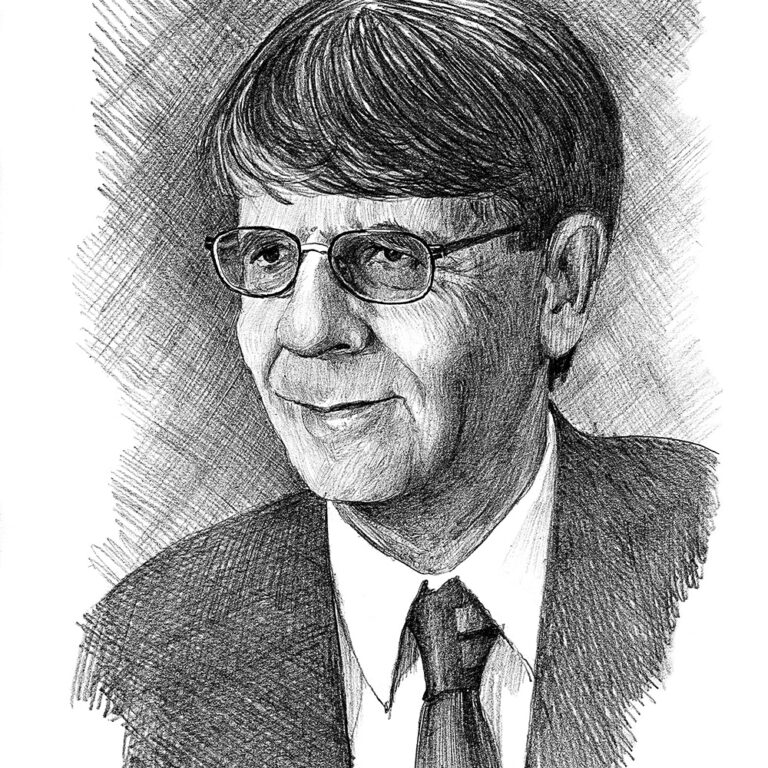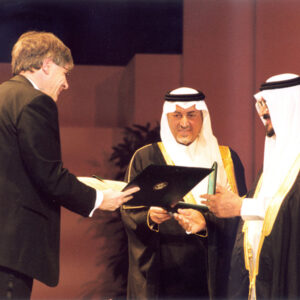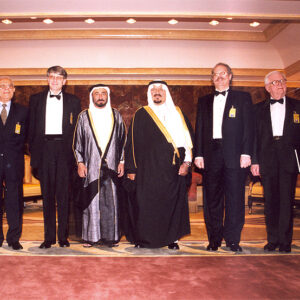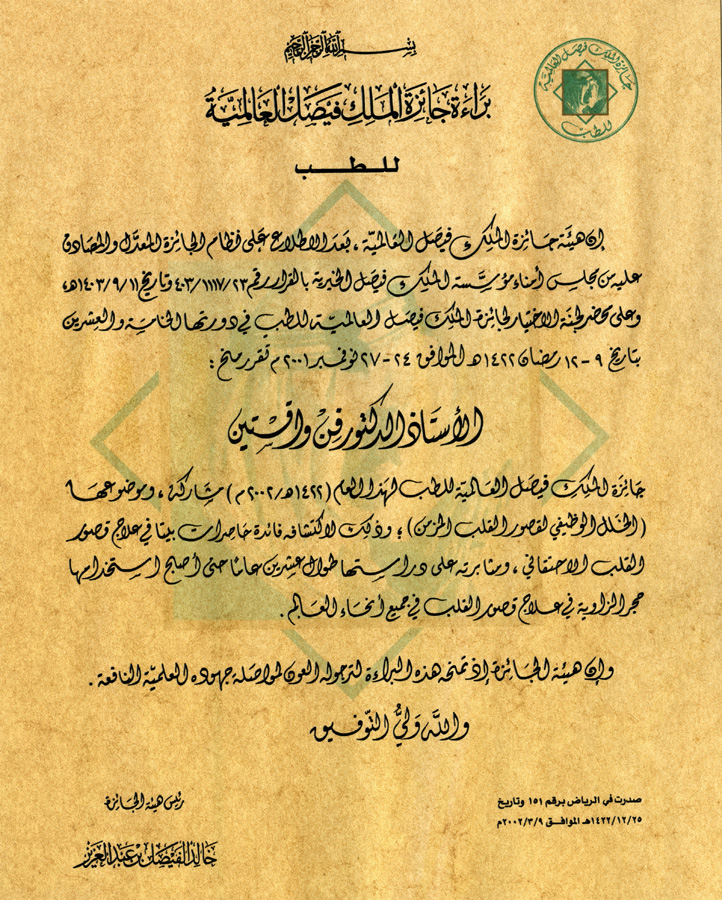

Professor Finn Waagstein
King Faisal Prize in Medicine 2002 Laureate
Topic: "Pathophysiology of Chronic Heart Failure "
My research has also been aiming at exploring a completely new and very controversial treatment concept for heart failure

Finn Waagstein graduated from Aarhus University Medical School in 1956, and was certified by the Educational Council for Foreign Medical Graduates at Evanston, Illinois, U.S.A. the same year. He completed his training in surgery for one year, and spent another four years of training in internal medicine in Gavle Community Hospital in Sweden. In 1970, he was a Resident at the Department of Cardiology at Sahlgrenska University Hospital and enrolled as a research fellow in cardiology from 1970-1976. His doctoral degree incorporated his first clinical observations on the use of beta-blockers in acute myocardial infarction and congestive heart failure. He was appointed Associate Professor at the University of Gothenburg in 1980. He assisted in establishing and directing the first Swedish heart transplant program and has been the director of the heart failure and cardiomyopathy research program since 1990, developing it into one of the most important facilities of its kind in the whole of Scandinavia. He is currently Professor of Cardiology and senior physician at Wallenberg Laboratory in the Department of Cardiology at Sahlgrenska University Hospital, Gothenburg University, Sweden.
Professor Waagstein initiated the brilliant concept of beta-blocking in the treatment of chronic heart failure. Despite earlier skepticism, controlled clinical trials and pathophysiological studies led by Waagstein ultimately resulted in worldwide recognition of beta blockade as an important modality in treating heart failure. He also contributed to studies on the role of autoimmune processes in the development of dilated cardiomyopathy, a major cause of heart failure in young and middle-age patients.
Professor Waagstein published more than 250 scientific papers, review articles and book chapters. He also gave keynote lectures at many international academic institutions and professional societies worldwide. He is a Fellow of the European Society of Cardiology, a founding member of the Society’s Working Group on Heart Failure in 1994, and recipient of its Medal in 2001. He was also the Chairman of the Working Group on Myocardial and Pericardial Disease (1997-2001). He received several awards in addition to the King Faisal International Prize for Medicine in 2002, including the European Society of Cardiology Denolin Award Lecture and Silver Medal in 2001, and the Lars Werkö Prize in 2002.
This biography was written in the year the prize was awarded.



